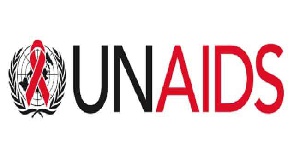The United Nations Programme on HIV/AIDS (UNAIDS) is renewing calls for continued research to find a vaccine for the disease whose 20th HIV Vaccine Awareness Day falls on Thursday.
New HIV infections have remained quite high for the past 10 years and every year, 1.9 million adults and more than 150 000 children become infected with the virus.
A release to the Ghana News Agency said although there have been significant discoveries in the field of vaccine research and development, there is still no effective vaccine available against HIV.
It said even if a 90 percent reduction in new HIV infections is achieved by 2030, there will still be around 200 000 new HIV infections annually and this shows how essential a vaccine will be for the long-term control of HIV.
“Despite our major success in scaling up treatment and ongoing prevention programmes, there are still large numbers of people becoming infected with HIV every year,” said Michel Sidibé, Executive Director of UNAIDS.
“The biggest impact in the eradication or control of infectious diseases in the history of public health has been achieved through vaccination, which is why a vaccine is an objective well worth continuing to invest in.”
Successful antiretroviral therapy requires lifelong adherence, but adherence relies on behaviour change, which can be difficult to maintain. In contrast, an HIV vaccine is a one-time intervention that is extremely cost-effective compared with the cost of a lifelong treatment.
The release said a simple-to-use vaccine would be a key tool in reaching the populations most affected by HIV.
It said models estimate that even a modestly effective vaccine—one that is 50 percent effective—would have a big impact on the epidemic and may be enough to significantly reduce new HIV infections among key populations.
The release said industry is helping to take on the challenge of vaccine development and vaccine candidates are in company pipelines, with some trials starting soon.
It said a large vaccine trial, HVTN 702, is in progress in South Africa, with results due in three years. That trial, part of the HIV Vaccine Trials Network, builds on the RV144 trial, whose report was delivered in 2009 and was conducted in Thailand, showing a 31 per cent efficacy.
This year, UNAIDS is hosting an art installation on the power of vaccines, reflecting the importance of linking art, advocacy and science.
The exhibition, entitled Immune Nations, opens on 23 May and runs until 30 June 2017.
The Joint UNAIDS leads and inspires the world to achieve its shared vision of zero new HIV infections, zero discrimination and zero AIDS-related deaths.
It unites the efforts of 11 UN organizations—UNHCR, UNICEF, WFP, UNDP, UNFPA, UNODC, UN Women, ILO, UNESCO, WHO and the World Bank—and works closely with global and national partners towards ending the AIDS epidemic by 2030 as part of the Sustainable Development Goals.
Health News of Thursday, 18 May 2017
Source: Maxwell Awumah, GNA

















